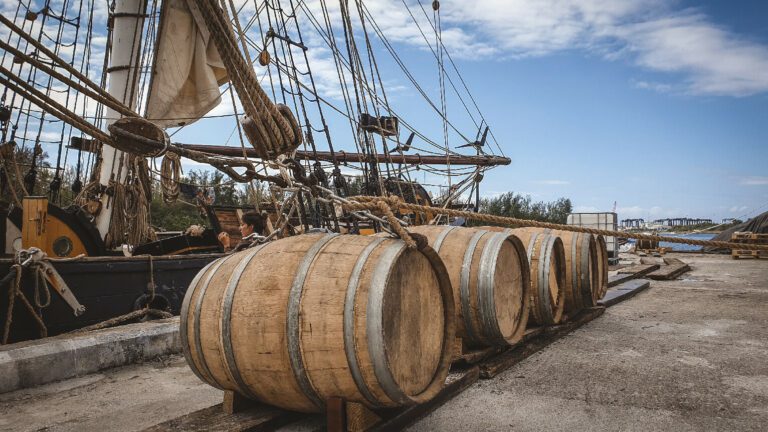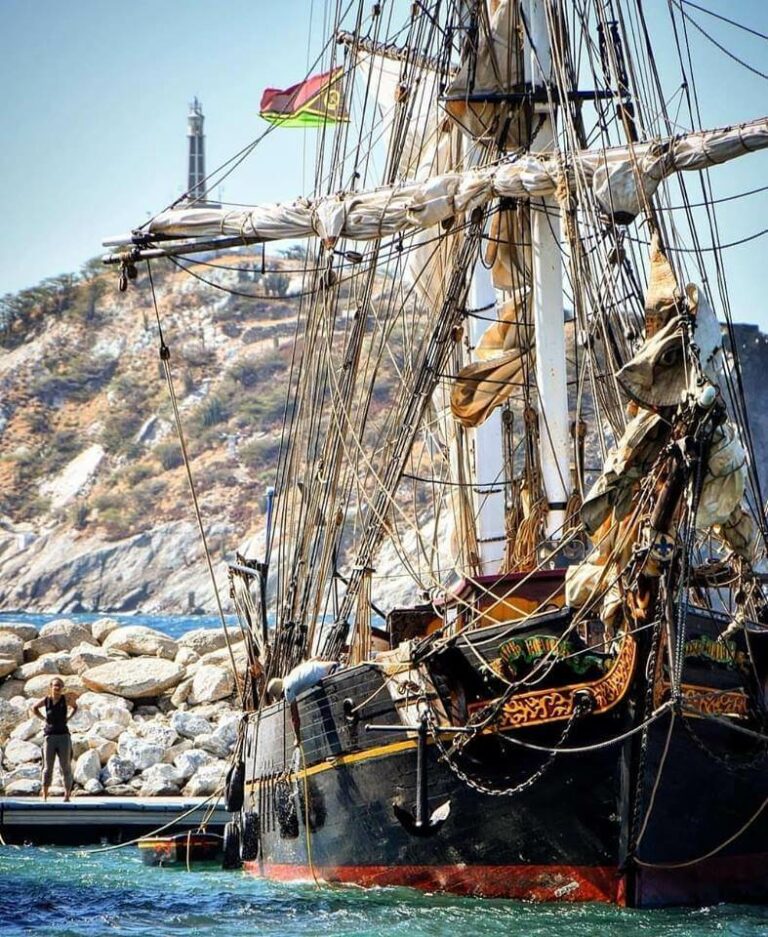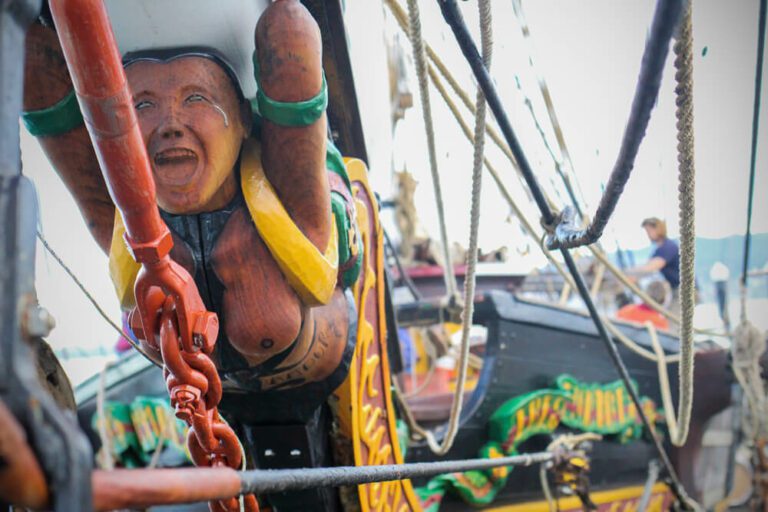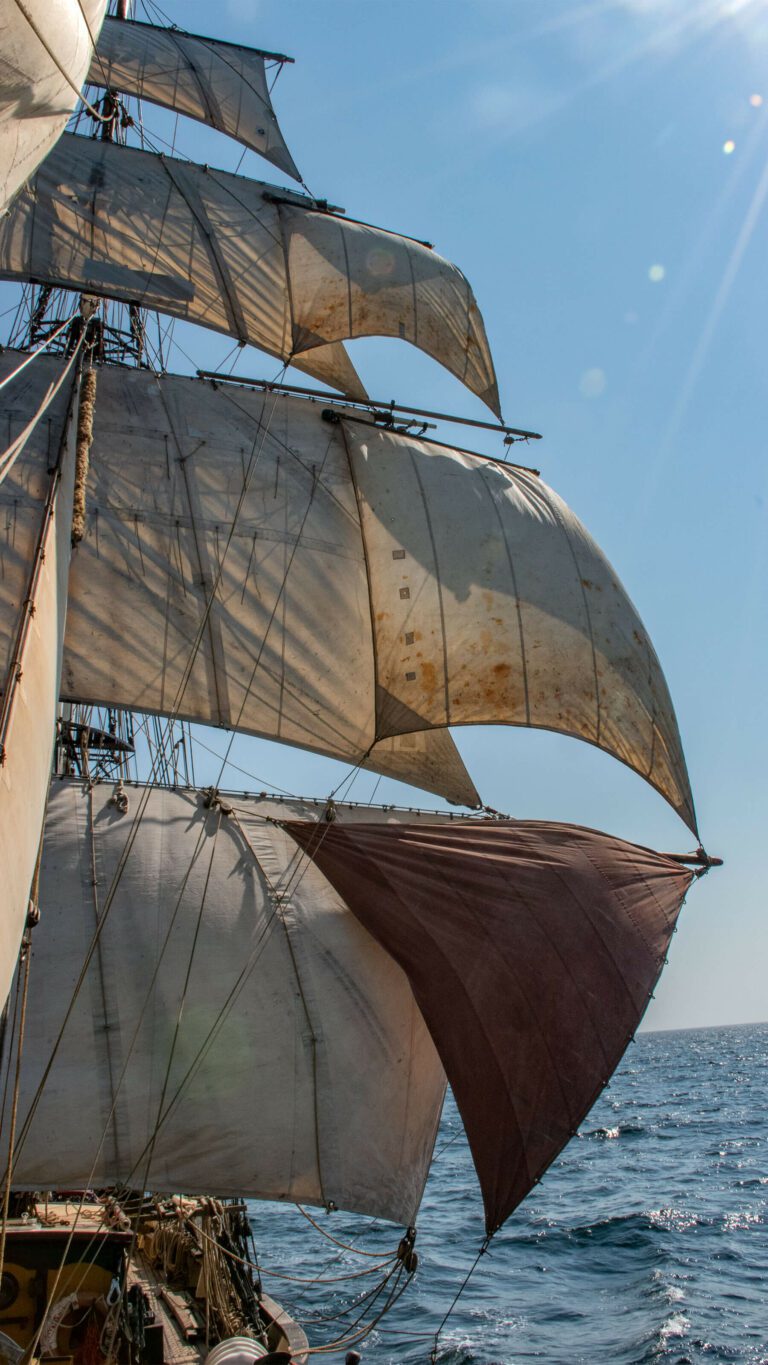For this short report, a selection of aspiring, novice, and salty sailors have been chosen as participants.
This motley crew is being subjected to a series of ongoing experiments, courtesy of the Mid-Atlantic Wind Fund – whose investment has been considerable. We thank it for fair winds, hours of laughter, a few sprains, burns, and sparkles and most importantly friendship – the best ship.
I would like to open with a question to my dear reader – have you ever tried washing army-sized pots, heeding nature's call, or simply standing still on a rolling ship? If not, it's not too dissimilar to attempting these tasks on a roller-coaster. It's bloody fun, but gravity becomes an ephemeral and distant force whose return you eagerly await (while your dinner flies past you).
Some initial observations from rolling's first tests include dust rolling (an especially jarring discovery considering the daily deck wash), letters apparently having a rave on your page, and the waves getting a little too friendly with our deck.
At present, and according to the latest studies, only around 10% of our nutrition ends up on the floor. Most of it is consumed afterwards though, so fear not zero waste warriors. Nevertheless, we await further contributions to the field. As predictions stand, we expect an increase in these numbers (and thus galley floor spice in our food), as the trade easterlies pick up.
Moreover, we are excited about upcoming qualitative reports on the subject. Some of the preliminary observations suggest sawdust in pesto pasta, morning jam in evening jam (with crumbs and other non-descript particulates), office supplies in the soup, banana in the peanut butter (ravenous sailors are to blame for this one), and olive oil sprinkled on noodles, a tragedy however intentional, Guven.
The Tres' systematic shuffling and dipping into the ocean also provides a luxurious, free-flowing paddling pool on starboard and portside alike. Perplexingly, this unrivaled onboard feature is met with grunts of complaint from the sailors who find recourse in a “fungus towel” to enter bed with merely damp feet instead of the more traditional 'soaked to the bone' (which most opt for). The perennially wet deck has also claimed a few buzzes and bashes but these are always taken in good spirit, with the prospect of a massage and perhaps an extra something in the dinner insight.
The sometimes (mostly) uneven undulation of the ship has trained a new kind of bipedal movement in the participants that I'm hesitant to call walking. Movements happen with opportunism and rarely dignity. Nevertheless, an added bonus of the current maintenance works is the glue (known as tar onboard), which is apparently lathered on anything within arms reach. The substance grips onto hands and clothes, overwhelmingly ensuring a successful (and scented) deck crossing. For more details on how braving the deck has been surmounted, see Petrie's work on the matter.
To conclude, rolling has had a mixed effect on the participants. For example, sea-sickness was prevalent at the start but quickly dissipated. While a favorite for dinner conversations were the adept and ingenious ways of wedging ourselves in the head – apparently making it one of the many new and valuable skills learned on the Tres. It is safe to say that rolling has added to the rhythmic and dynamic life onboard. Not only has it been a source of innumerable smiles and bursts of glee, but also a mellowing force, whose pattern and ability to warp time will be sorely missed when we rejoin the land-lubbers. It will have also, hastily and fundamentally, accompanied us for a 2700NM crossing – a gift words cannot account for.
Once again, I will take the opportunity to thank the Mid-Atlantic Wind Fund for its unwavering support (even if it was a couple of days late).
Do you enjoy reading our crew's adventures? Imagine being there when you enjoy our products at home!
If you sign up for the newsletter, we will be the first to inform you when we publish new sailing routes. The Fairtransport “Sailmail” is packed with exciting sailing adventures, exotic products and the latest news about the ships and their events. You can't miss this one!









